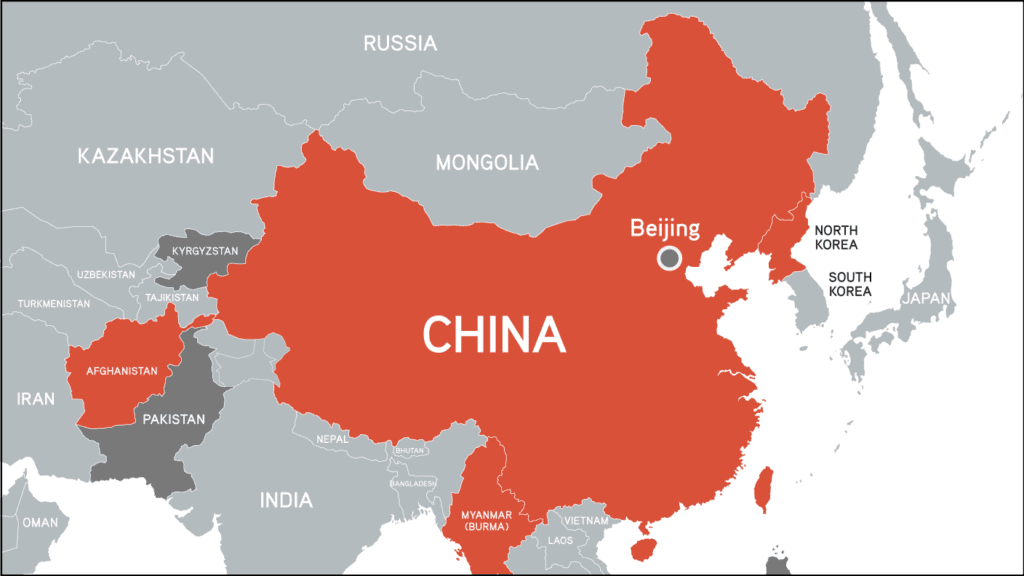France’s role as an influencer in the European Union may have taken a dent with President Emmanuel Macron appearing to follow a policy line of his own on Taiwan following his recent visit to China. At least that is how it looks at face value though going a little deeper, it reflects Europe’s wish to join the US on an equal footing on China.
Macron said that Europe cannot blindly follow the United States’ lead and should avoid “getting dragged into crises that are not our own”. The Western media suppose the remark may be referring to Taiwan, the assumption being that Macron may be undercutting the trans-Atlantic front against China.
That the French president also added that he reiterated France’s support for the status quo in Taiwan did not stop the buzz of suspicion in Washington DC.
Macron’s controversial statement runs like this: “Europeans cannot resolve the crisis in Ukraine; how can we credibly say on Taiwan, ‘watch out, if you do something wrong, we will be there?’”
According to Western media analyses, “commentators may fret over Macron’s blunt comments, but his remarks reveal the deeper motivations for his trip to China: that the European Union should find its own voice in world affairs and not let its worldview and interests be shaped by others, whether in Washington or Beijing.” Though US policymakers may not be ready to hear it, the uncomfortable truth is that Macron is saying out loud what many European partners quietly believe, the reports go on to suggest.
This is not to say that either France or the European Union is thinking of its own policy instead of simply backing the US line on Taiwan-China. It is more an internal matter between Europe and the United States. The Americans have often advised the Europeans to be much more responsible for their security. Over time that has made Europe think of its ‘strategic autonomy’, a phrase Macron likes to use.
Foreign Policy writes: “Behind closed doors, European leaders genuinely worry about walking in lockstep with Washington into an open conflict with China. Europeans are concerned with many aspects of China’s behavior, from unfair trade practices to human rights abuses.”Then why the hesitation of Europe? The European Commission wants to confront some of these issues and has even described China as “systemic rival promoting alternative models of governance” in 2019. France echoes this sentiment in full.
At the same time, however, Europe does not want to be seen simply towing the American line on China-Taiwan which is says is an attempt to assert its global primacy as a superpower. Europe would want to a policy of own in China and Taiwan. The policy may coincidentally be no different from the US policy, but Europe does not want to be seen to tag along with the Americans.
Having said that, Europe itself is not fully supportive of Macron’s statement. Many European countries are sceptical of Macron’s so-called EU interest. They realise only too well that the French president, when he recently visited Beijing, only with a few dozens of French companies CEOs in tow. The implication is that Macron was intent on projecting France’s cause, not the EU’s, when he went to China. Incidentally, recent visits by heads of government of Germany, France and Spain, led to China deciding to set up mega-factories of Chinese batteries in these countries. This completely goes against the interest of the EU which is keen on having its own independent production of batteries.
Another charge against Macron is how China treated Macron and his entourage differently from European Commission President Ursula von der Leyen. Both travelled together to China. Her position towards China’s is sterner than Macron’s. Reportedly Macron got a warm reception in Beijing compared to the cold reception she received.
A media report summed up Europe’s anguish over this thus: “We do not need Macron to pretend to be speaking for all of Europe while he is really speaking for France or for himself; we need him, together with other EU heads of State, to find a common path to international policy, something that has to be molded in Brussels, not in Beijing or Washington either.”
Nevertheless, the United States will need to accept that it cannot take Europe’s support for granted to build a common approach for handling China. It will have to first forge a common economic interest with Europe and smoothen the latter’s ruffled feathers over military and Nato matters before proposing a joint strategy on China. And anyway, Macron is not the first European leader to visit China and push his country’s policies. Heads of several European countries have been in Beijing recently, and negotiated profitable business deals for their respective countries.
But what they do as a collective Europe is something altogether different. And it is here that the EU experiences a trust deficit. Take the example of US-China trade ties. The US has repeatedly pressured the EU to reduce its trade ties with Beijing even as its own trade with China reached a record high of $690 billion in 2022.
Instead of expecting alignment, U.S. policymakers need to look for places where both sides’ interests concretely align. For now, Europe’s main strength is leveraging its commercial power. The United States should not undermine this with protectionism, or by opposing the emergence of a European defense industry.
It is in this context that Macron’s statement gains significance. Europe looks for a level playing field vis-a-vis a strategy with the US on China and may not be willing to simply do the American bidding. As Foreign Policy says: “Despite the obvious tensions at play, there’s no need for Washington to despair, because a more autonomous Europe will only benefit the United States’ push against China in the long run. To compete with Beijing, Washington will need a credible partner, not a set of aligned clients.”

